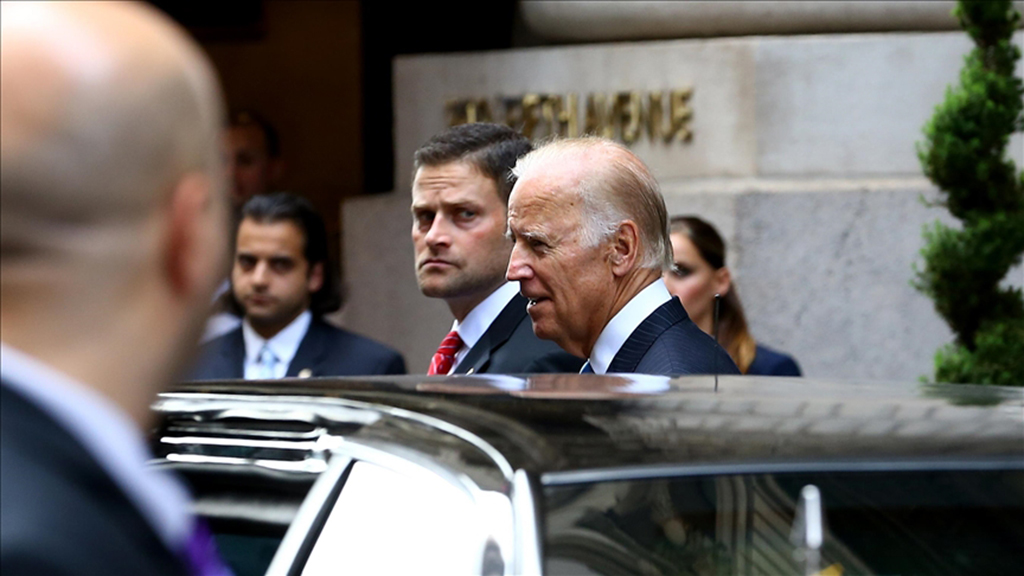
'America is back': Has Biden restored US foreign policy after 1 year in office?
It is difficult to say Biden made good on his 'America is back' slogan
Share
Joe Biden, who emerged triumphant from the November 2020 elections, which took place in one of the most critical periods in American political history and witnessed firsts in many respects, had to face the legacy of former US President Donald Trump.
The US, which has been having difficulties in carrying the leadership burden of the global liberal order it has established, deeply questioned its claim to global leadership during both the Obama and Trump eras.
The invasions of Afghanistan and Iraq and the 2008 economic crisis revealed the deadlocks of American foreign policy.
The deep skepticism developed by the American people against global leadership and engagements reached its highest level during the Trump era and continues today.
Although Biden gave the message that "America is back" to the world as soon as he came to power, one cannot say that he has come to realize his claim to global leadership convincingly through concrete policies.
Trump's nationalism
The US claim to lead in international organizations suffered serious setbacks during the Trump era.
Trump perceived NATO as an organization where the US was protecting Europe with no thought of personal gain. Trump also showed his disbelief in the EU with his support for Brexit.
The former US leader had targeted the North American Free Trade Agreement (NAFTA) and he also canceled the Transatlantic Trade and Investment Partnership (TTIP) deal, which was signed during the Obama era, aimed at restricting China's movement area by strengthening trade ties with countries in the Asia-Pacific region.
Believing that international institutions and agreements limited the US' freedom of action, Trump mostly favored one-on-one negotiations with country leaders. His nationalist and protectionist policies had caused the US to move further from its global leadership claim.
Biden's counter moves
During his presidential campaign, Biden directly targeted the Trumpist understanding of international politics and argued that the US leadership on global issues is not only a necessity, but also an obligation. As formulated by US Secretary of State Antony Blinken, this would mean that the vacuum, which will emerge after the US' renunciation from its world leadership, would be filled by anti-democratic powers such as Russia and China.
Trump was strongly criticized by Biden for his lack of international coordination and leadership in the face of global challenges such as the coronavirus outbreak.
The November elections showed how the American people thought Trump did a poor job fighting the pandemic.
However, 74 million votes received in the 2020 US presidential election showed how Trumpism was permanent in the country to a considerable extent. Biden's promise of an effective fight against COVID-19, which stood out as the most important factor in his election success, raised expectations in the public.
Biden's 'America First' step
Although Biden promised to globally lead the fight against the pandemic, he prioritized his own country in the production of health equipment and materials as well as the vaccination process.
Biden's move to prioritize meeting the needs of the American people before calling on all nations to act together in the face of a global threat like COVID-19 showed the permanence of the "America First" slogan of Trumpism.
We see that the fight against the pandemic, which is a global threat – as revealed by new variants such as omicron – is tried to be carried out at the national level, resulting in a delay in ending the pandemic.
It is obvious that the current attempts to carry out the struggle against this global threat at a national level prolong the lifetime of the pandemic, a fact proved by the emergence of new variants such as omicron.
It is obvious that the Biden administration's policy to prioritize vaccination of the entire American population is a weak strategy in the face of new variants emerging in other countries where vaccination rates are much lower.
Biden struggles to resurrect Western alliance
Unable to produce a global coordination strategy in the fight against the pandemic, Biden has remained weak in his claim to global leadership. He has had difficulties also in fulfilling his promise to resurrect the Western alliance. The Biden administration made attempts to re-strengthen NATO, the G20, G7, and climate summits as well as international institutions and initiatives.
Confronting the legacy of the Trump era, the current US administration also returned to the Paris climate accord. Although European allies have welcomed Biden's emphasis on Western alliance and democracy, they abstain from taking a stand against China and Russia, for now. Biden's efforts to define China as the West's greatest challenge have been met with implicit opposition from allies such as Germany, who do not seek a "new Cold War."
Biden's record in relations with European countries has also been underwhelming thus far as he has been having difficulties in building a clear common stance against Russia among his Transatlantic partners. Biden has been successful in his efforts to get Europe to adopt a more skeptical approach toward China regarding issues linked to advanced technologies such as 5G, but the crisis of trust that arose in bilateral relations with France after the signing of AUKUS – a trilateral security pact between Australia, the UK and the US – should be kept in sight.
Despite the US president's emphasis on the EU's common values and democracy, his difficulty in convincing Germany to cancel the Nord Stream gas pipeline showed once again that geopolitical issues within the West take precedence over values.
Although the Biden administration has made some progress in repairing the damages by the Trump era, it is difficult to say that it was successful in enabling the Western alliance to act jointly on issues of common concern such as the COVID-19 pandemic, Russia and China.
US' Middle East performance also weakened its image in international arena
It will not be easy for the Biden administration, attempting to reduce its political costs and burden in the Middle East, to compensate for the loss of prestige caused by the historical images experienced in the final stage of the withdrawal from Afghanistan. Although he has long advocated the withdrawal, Biden's Trumpist decision to withdraw from Afghanistan without consulting his NATO allies has dealt a blow to the US' claim to global leadership.
With this move, the US also reminded its other "partners" such as the YPG terror group that its support is not guaranteed. It is difficult to say that the unconditional withdrawal from Afghanistan produced a permanent cost in US domestic politics, but, at the international level, it has obviously weakened the US' global leadership claim.
Regardless of Trump or Biden, we are faced with a US whose ability to take a common stand with the international society for the resolution of global problems has weakened; a country where we see that the "America First" slogan is more permanent than it is thought, and whose international initiatives should be determined in line with its domestic policy.
When we look at the Biden administration's foreign policy performance in its first year, we see that the US is attempting to return to its claim to global leadership, but it is at the same time having difficulties in forming new international initiatives in the face of increasingly complex global challenges.
It is clear that the US has fallen short of leadership in many issues, from the pandemic to economic inequalities, from resurrecting the Western alliance to tackling powers like Russia and China who want to revise the international system in their favor.
In this context, it can be argued that Biden's rhetoric of "America is back" remains unfulfilled, at least for now.
[Anadolu Agency, January 2, 2022]
Tags »
Related Articles







